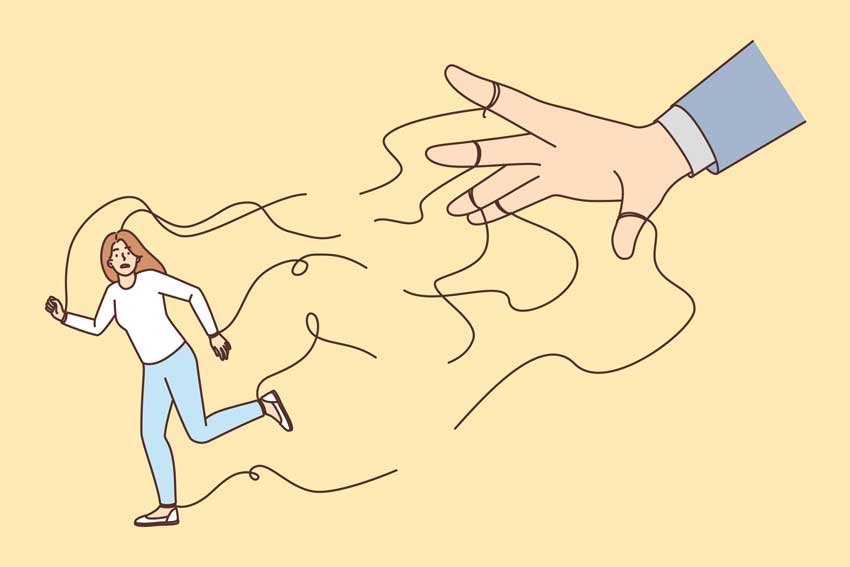Am I Manipulative Quiz
Manipulation consists of establishing a hold on the consciousness of others in order to control them and make them adopt behaviors that are not in their interest.
Advertisement

Signs that could indicate that you are a manipulative person
You make the other person feel guilty
A manipulator is an expert in the art of making people feel guilty. They have the techniques and strategies to make you feel like you’re at fault. They usually use your emotions and weaknesses to make you feel guilty.
They can deftly twist your words to their advantage and never tell you anything clearly so they can use this communication failure against you at the appropriate time. If you feel like you’re always trying to do everything to show you that the other person is wrong, it could indicate that you are manipulative.
Guilt is a formidable weapon to bring someone to change their way of acting, thinking and interpreting. We all, at one time or another, feel guilty because we wonder if we did the right or wrong thing.
But how do you know if the other person’s expectations are legitimate, if they are not taking advantage of your desire to make the relationship work.
In a manipulative maneuver, the goal is to destabilize the other person and make them doubt themselves.
In fact, a form of manipulation exists as soon as an individual uses their own influence to make the other behave differently than they would have done spontaneously or under normal circumstances.
You belittle or flatter excessively
You act in an aggressive way and put down people whenever you can.
You are unconsciously trying to make the other person lose their self-esteem by criticizing them (negatively) and hitting emotionally where it hurts the most.
On the other hand, you may start flattering in a totally excessive way.
This can be explained by the fact that you are trying to compensate for the negative speech that you often carry towards others or that you simply are trying to give a false impression.
You have to be diplomatic in certain situations. But if you find yourself totally changing your words depending on the person you’re talking to.
It could mean that you have manipulative intentions and you’re only doing that in order probably to make yourself liked by them.
Giving a little and taking too much
Takers can create a power imbalance that makes it difficult for the other person to feel valued and respected.
This can lead to feelings of frustration, anger, and resentment. People who are constantly subjected to this type of behavior may eventually lose patience and end the relationship.
The negative effects of giving little and taking too much go beyond personal relationships.
In a professional setting, takers can create a toxic work environment that affects everyone in the workplace. They may take credit for others’ work, hog resources, or make unreasonable demands on their colleagues.
This can result in decreased morale, productivity, and team cohesion.
If you always find yourself on the receiving end of any relationship (work, romantic, family…), it could mean that you are a manipulative person.
Self-centered behavior
People who are self-centered tend to put themselves first all the time, talking non-stop about their achievements, opinions and needs.
They may have difficulty listening to others and considering their point of view, which can make them insensitive to the feelings of others.
They may also be domineering and always want to have the last word in conversations. Self-centered people can be condescending and critical of others, often viewing others as inferior to themselves.
It is important to note that, although anyone can exhibit self-centered behaviors at times, repeated behavior can indicate a high level of egocentricity.
How to stop being a manipulative person?
In order to stop being a manipulative person, it is important to become aware of your own motivations and behaviors. It can be helpful to do some introspection about why you tend to manipulate others.
Then you can adopt strategies to change your behavior, such as open and honest communication, respecting the needs and opinions of others, taking their perspectives into account, and resolving conflicts peacefully.
It is also important to work on self-confidence and building a healthy personal identity to avoid using manipulation to get what you want.


